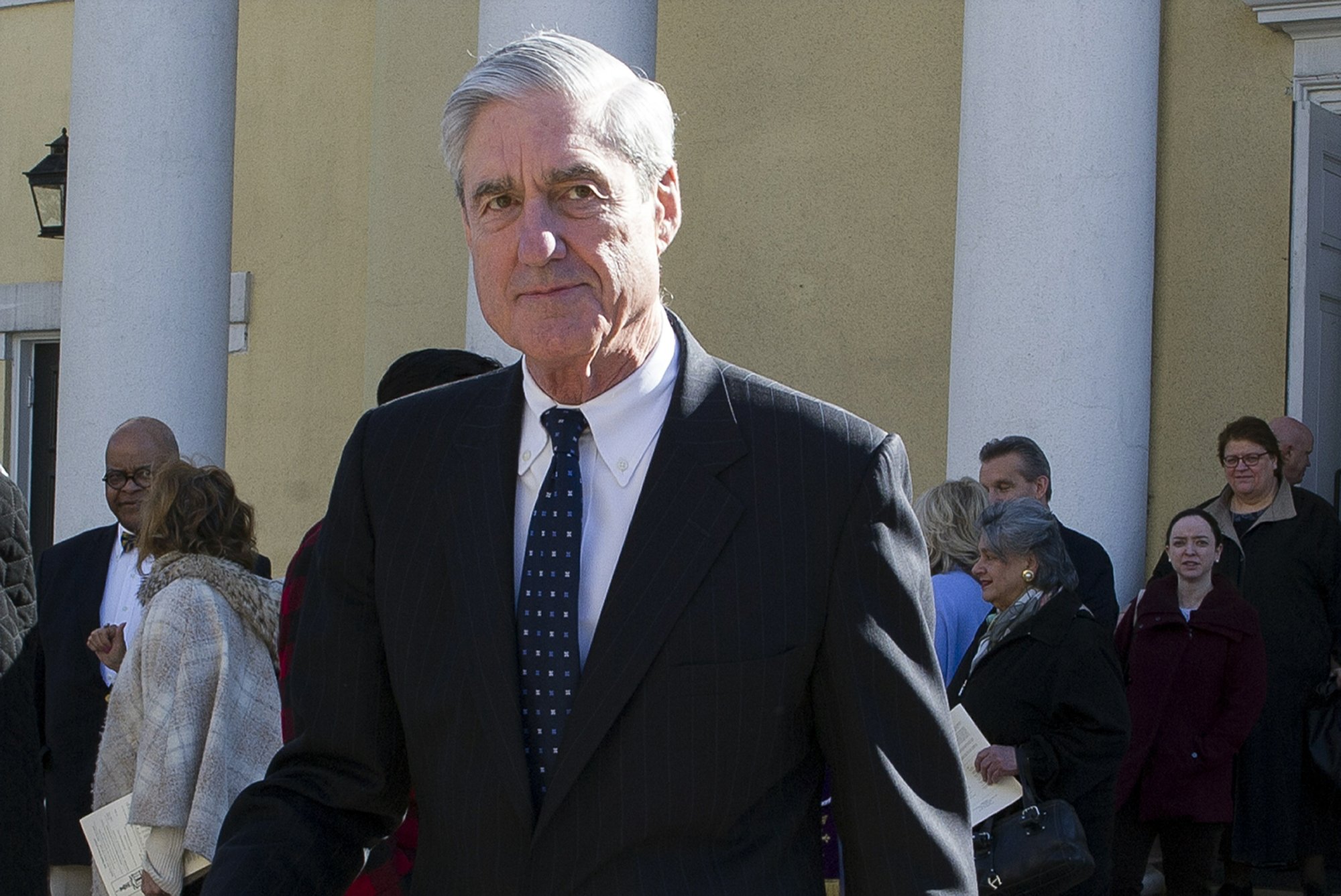Alwaght- US Special Counsel Robert Mueller, in a letter to Attorney General William Barr last month, expressed frustration about how the findings of his Russia investigation were being portrayed, saying he worried that a letter summarizing the main conclusions of the probe lacked the necessary context and was creating public confusion about his team’s work, a Justice Department official said Tuesday night.
Mueller communicated his agitation after Barr issued a four-page document that summarized the special counsel’s conclusions about whether President Donald Trump’s campaign had conspired with Russia and whether the president had tried to illegally obstruct the probe. Mueller and Barr then had a phone call where the same concerns were addressed. The official was not authorized to discuss Mueller’s letter by name.
"The Special Counsel emphasised that nothing in the Attorney General's [summary] was inaccurate or misleading," a justice department spokeswoman said in a statement. "But he expressed frustration over the lack of context... regarding the [report's] obstruction analysis."
The letter lays bare simmering tensions between the Justice Department and the special counsel about whether Barr’s summary adequately conveyed the gravity of Mueller’s findings, particularly on the key question of obstruction. The revelation is likely to sharpen attacks by Democrats who accuse Barr of unduly protecting the president and of spinning Mueller’s conclusions in Trump’s favor. And it will almost certainly be a focus of Wednesday’s Senate Judiciary Committee hearing at which the attorney general will defend his handling of Mueller’s report.
Mueller's investigation into alleged Russian interference in the 2016 presidential election has led to 35 people being charged, including several who were a part of Mr Trump's campaign and administration.
Barr, who was appointed by Trump, held a news conference before the full report was made public in which he backed the president.
Barr’s letter, released just two days after the Justice Department received the special counsel’s report, said Mueller had not reached a conclusion on whether the president had obstructed justice despite presenting evidence on both sides of the question. Justice Department officials were surprised Mueller had not made a determination, prompting Barr and Deputy Attorney General Rod Rosenstein to step in and decide on their own that the evidence was insufficient to support an obstruction charge.
Though Barr’s letter did say that Mueller’s team had not exonerated Trump on obstruction nor concluded that he had committed a crime, it did not detail the specific evidence Mueller’s team accumulated or describe Mueller’s legal analysis as he examined nearly a dozen episodes of potential obstruction, including the firing of former FBI Director James Comey.
Barr has sought to downplay any disagreements with the special counsel, and has brushed aside allegations that he mischaracterized Mueller’s findings.
Barr said Mueller answered “no” when he asked him whether he would have recommended indicting Trump but for a Justice Department legal opinion that says a sitting president cannot be criminally prosecuted. Mueller’s report, however, makes clear that his thought process was shaped in part by that legal opinion, and that he believed it would be unfair to publicly accuse the president of a crime if he could not be prosecuted and have a trial to defend himself.
The attorney general also did not acknowledge any sort of potential disagreement with Mueller at a recent Justice Department appropriations hearing, telling a Democratic congressman, “I don’t know whether Bob Mueller supported my conclusion.”
As Mueller shared his frustrations with Barr on the phone call, the men discussed whether additional context from the report could be released, Kupec said. But Justice Department officials said they decided it made more sense to release the bottom-line findings of Mueller’s report rather than include the detailed legal analysis behind them. They also decided against releasing summaries that Mueller’s team had prepared. Barr has said such summaries run the risk of being either over-inclusive or under-inclusive.
The letter is likely to be a central focus at Wednesday’s Senate Judiciary Committee hearing with Barr. According to prepared testimony released Tuesday night, Barr will tell the committee that Mueller’s investigation concluded without any interference and that he never overruled the Justice Department on any proposed action.
The appearance is Barr’s first on Capitol Hill since he released a redacted version of Mueller’s report on April 18 and comes amid deepening Democratic skepticism about his impartiality. Those concerns were fueled in part by Barr’s statements at a press conference announcing the release of the Mueller report, where he repeated multiple times that Mueller’s investigation had not found any collusion between the Trump campaign and Russia — even though the report notes that collusion is not a legal term.
The Washington Post was first to report the contents of the letter. The newspaper said Mueller complained that Barr’s summary “did not fully capture the context, nature and substance of this office’s work and conclusions.”
“There is now public confusion about critical aspects of the results of our investigation,” according to Mueller’s letter. “This threatens to undermine a central purpose for which the Department appointed the Special Counsel: to assure full public confidence in the outcome of the investigations.”
The Justice Department confirmed the authenticity of that language.



























